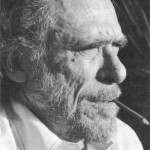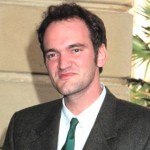
A reader writes:
Dear Ray Harvey: Is Charles Bukowski a great artist?
— Billy Badass
Dear Billy Badass: No, he’s not. Bukowski is too sloppy to be a great artist. He lacks vision. He lacks depth and he lacks focus. Reading him, one is reminded of Truman Capote’s criticism of Jack Kerouac’s On the Road: “That’s not writing; it’s typing.”
Here’s what I regard as a quintessential Bukowski poem:
A RADIO WITH GUTS
it was on the 2nd floor on Coronado Street
I used to get drunk
and throw the radio through the window
while it was playing, and, of course,
it would break the glass in the window
and the radio would sit there on the roof
still playing
and I’d tell my woman,
“Ah, what a marvelous radio!”
the next morning I’d take the window
off the hinges
and carry it down the street
to the glass man
who would put in another pane.
I kept throwing that radio through the window
each time I got drunk
and it would sit there on the roof
still playing-
a magic radio
a radio with guts,
and each morning I’d take the window
back to the glass man.
I don’t remember how it ended exactly
though I do remember
we finally moved out.
there was a woman downstairs who worked in
the garden in her bathing suit,
she really dug with that trowel
and she put her behind up in the air
and I used to sit in the window
and watch the sun shine all over that thing
while the music played.
What do you think?
I think Bukowski does possess something — which is to say, he’s not devoid of skill or talent, and I admire his devotion to the sacred art of literature. For one, as you can glimpse above, he does possess a genuine sense for beauty, though it doesn’t consistently come through. And I think he’s genuinely intelligent. His all-time favorite movie was Eraserhead by David Lynch, which I think is interesting. But in the end, Bukowski’s talent remains largely fallow. I like drunken tortured writers as much as anyone, and I am as susceptible as anyone to the romantic quality we see and sense in that sort of writer. Still, I regard Bukowski as over-focused on alcohol and therefore limited.
In short: If you’ve read a few Bukowski poems or stories, you’ve pretty much read them all, and a little Bukowski goes a very long way.
Here’s Bukowski at his best (and I do love this movie which he wrote):


